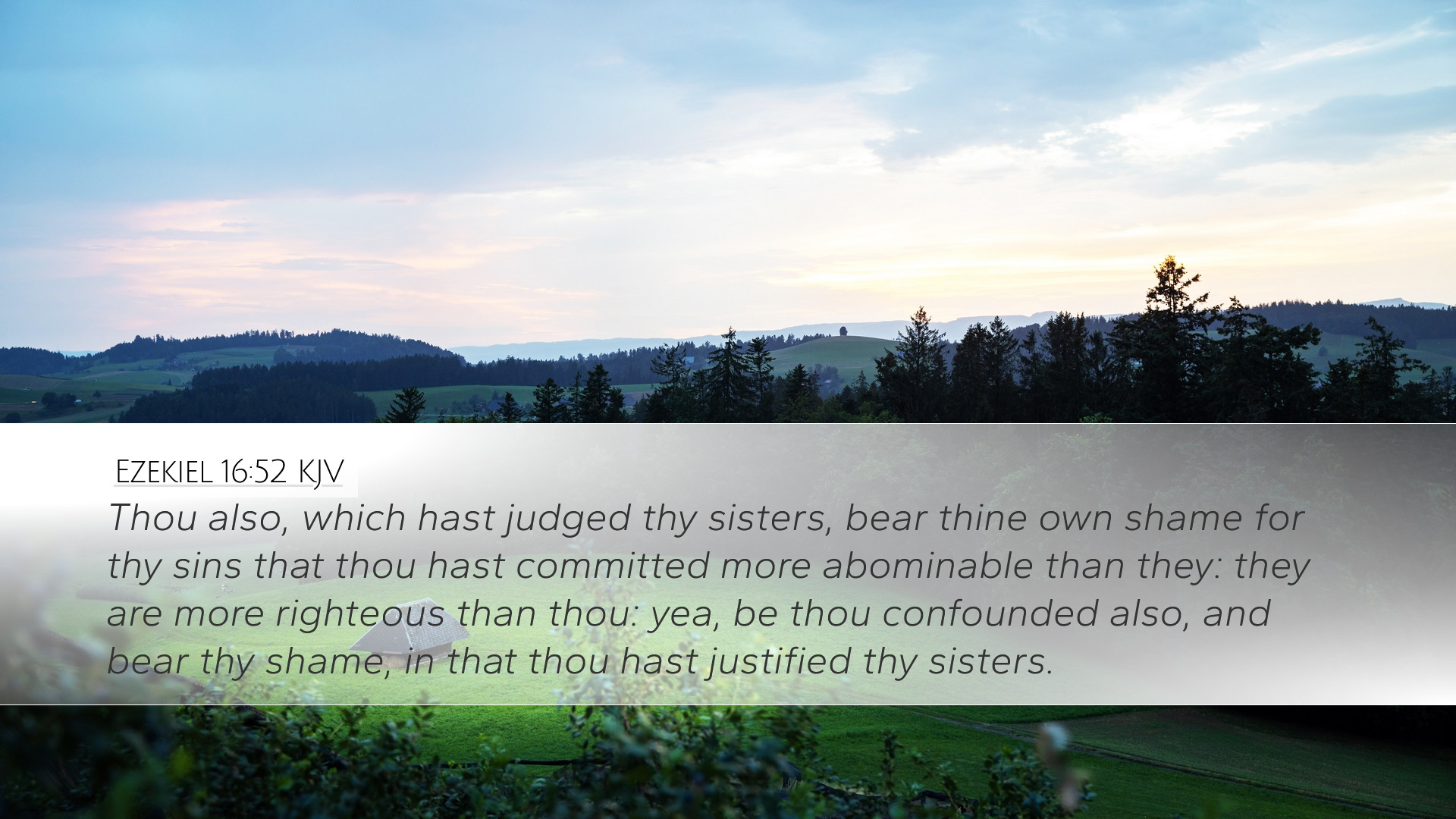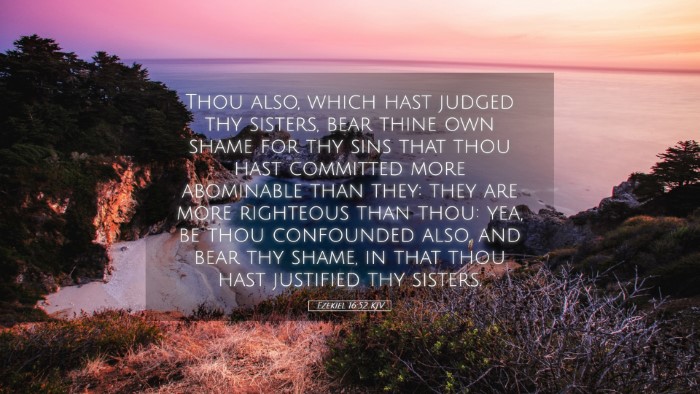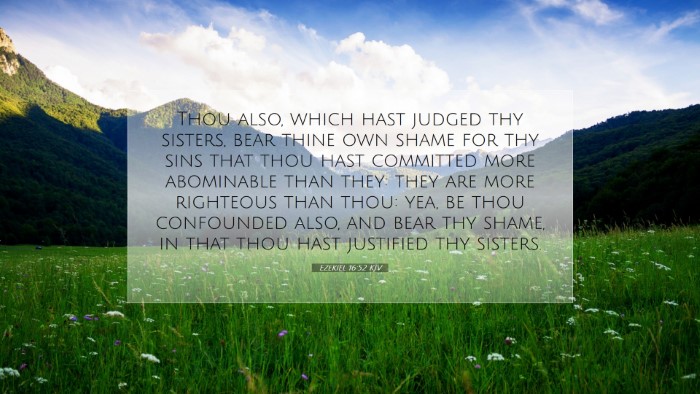Ezekiel 16:52 - Commentary and Insights
Verse Text: "Thou hast borne thy lewdness and thine abominations, saith the Lord." (Ezekiel 16:52, KJV)
Context and Overview
The Book of Ezekiel presents a profound exploration of God's judgment and mercy through the prophetic messages of Ezekiel. In chapter 16, the Lord uses the allegory of an unfaithful wife to depict Israel's infidelity to Him, contrasting the nation's glorious beginnings with its sinful behavior.
Ezekiel 16:52 serves as a poignant declaration of judgment, emphasizing the gravity of Israel's sins and their consequences. In this verse, the Lord confronts Jerusalem directly, making it clear that the city must acknowledge its own indecency and the weight of its transgressions.
Theological Insights
- Identity and Responsibility: The verse highlights a critical aspect of identity: Jerusalem's failure to recognize its illicit actions contributes to its downfall. Ezekiel speaks directly to the moral and spiritual identity of Israel, insisting that they understand their lewdness and abominations.
- Divine Judgment: This proclamation of judgment is significant. It expresses that divine judgment is not arbitrary but a response to the character and choices of the people. God's declaration emphasizes His holiness and righteousness, as He cannot condone sin.
Commentary Synthesis
Matthew Henry's Commentary
Matthew Henry remarks that this verse encapsulates the refusal of Jerusalem to repent from its sinful practices and the dire consequences thereof. He points out that the people have not merely sinned but have borne their sins; this idea of 'bearing' highlights the weight of their guilt. Henry underscores God's undying covenant love, juxtaposed with the nation’s persistent infidelity, highlighting the tension between divine invitation and human rebellion.
Albert Barnes' Notes
Albert Barnes elaborates on the concept of abominations and lewdness as a metaphorical representation of Israel's spiritual unfaithfulness. He emphasizes the gravity of bearing one's sins, indicating that the people not only committed these acts but have also come to embrace them. Barnes asserts that this calling out by God serves as both a warning and an opportunity for realization; rather than deny their actions, Israel is urged to confront their transgressions.
Adam Clarke's Commentary
Adam Clarke emphasizes the emotional tone of this verse, suggesting that it represents a divine lamentation over Jerusalem's condition. Clarke points to God's holiness in calling out the sins of the people, noting that the term 'lewdness' highlights the severity and pervasiveness of their idolatry. He suggests that this confrontation comes as a necessary critique, urging the people to see the contrast between their spiritual prostitution and the purity of God's character.
Practical Applications
- Understanding Sin: Pastors can use this text to teach congregations about the seriousness of sin and personal accountability. It serves as a reminder that acknowledging sin is the first step toward repentance.
- The Call to Repentance: Church leaders can encourage believers to reflect on their own spiritual fidelity and the areas of life where they may have strayed. This introspection allows for a deeper engagement with God's merciful nature.
- God’s Faithfulness: The verse underscores the idea that despite humanity's failures, God’s faithfulness remains constant. This serves as an encouragement that no matter how far one has strayed, return is always possible through sincere repentance.
Concluding Thoughts
Ezekiel 16:52 acts as a formidable reminder of the relational dynamics between God and His people. It is a testament to how seriously God views unfaithfulness and how He calls His people to recognize their shortcomings. This commentary, drawing from the rich insights of Henry, Barnes, and Clarke, emphasizes that understanding our flaws isn’t merely about acknowledging them but also about responding appropriately to God's corrective love.


